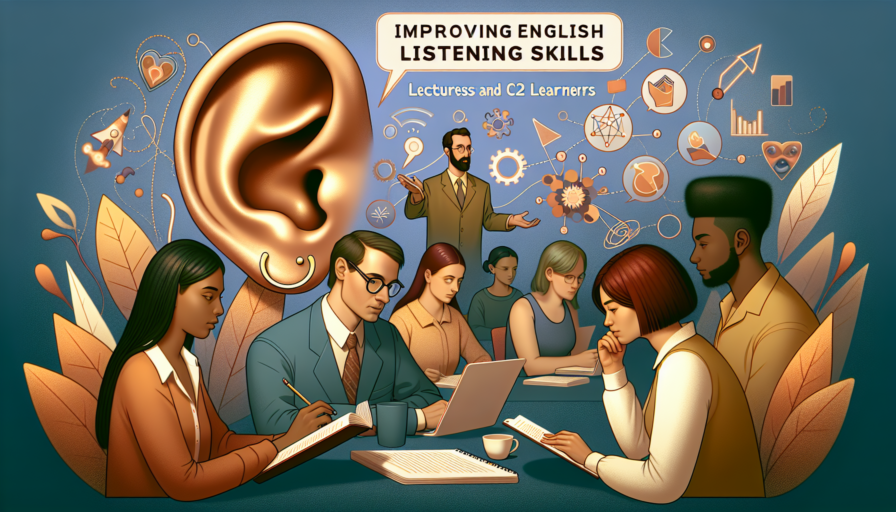
Contents
As C2 learners, we are often proud of our extensive vocabulary and advanced grammatical structures. However, English listening skills are a fundamental component of mastering the language. By honing these skills, we can significantly enhance our communication abilities and comprehension of nuanced dialogues and lectures.
Listening in English allows us to:
In our journey towards fluency, we must remember that English listening skills are not merely a passive activity. They require active engagement and practice. By embracing various listening exercises—like podcasts, audiobooks, and conversations with native speakers—we fortify our learning and prepare ourselves for real-world interactions.
When we attend lectures and seminars, our goal is to maximize our understanding and retention of the material presented. To achieve this, we can implement several best practices for engaging with lectures and seminars that enhance our learning experience.
By adopting these best practices for engaging with lectures and seminars, we can enhance our academic performance and deepen our knowledge on various subjects. Together, let’s commit to being more engaged participants in our educational journey.
At Britannia School, we understand the importance of developing strong listening skills in both personal and professional contexts. To assist in this journey, we’ve compiled a list of the top resources and platforms that can help us enhance our listening skills effectively.
Additionally, we can benefit from participating in listening-based workshops and online courses. These structured formats allow us to practice actively while receiving constructive feedback. By utilizing these top resources and platforms, we make strides in our pursuit of heightened listening skills.
At Britannia School, we recognize that mastering effective note-taking techniques is essential for enhancing our comprehension during lectures. When we sit in a classroom, it can often be challenging to keep up with the pace of the instructor. However, by implementing specific strategies, we can transform our notes into valuable study materials that significantly aid our understanding.
One of the most powerful effective note-taking techniques we can employ is the Cornell Method. This technique breaks our notes into three sections: cues, notes, and summary. By organizing our information this way, we not only improve our ability to review later but also enhance our retention. Another popular approach is the Mapping Method, which visually connects concepts and ideas. This strategy allows us to see relationships and hierarchies within the material, making it easier to digest and recall.
Additionally, utilizing symbols and abbreviations can streamline our process, ensuring that we capture key points efficiently. For instance, we can develop a set of personal shortcuts to identify frequently mentioned terms or ideas. Incorporating visual elements, such as diagrams and charts, can also make our notes more engaging and easier to understand. By using these effective note-taking techniques, we create a comprehensive resource that we can revisit long after the lecture is over.
In our journey at Britannia School, we often participate in lectures and seminars that serve as vital tools for improving our listening skills. By engaging with diverse speakers and topics, we gain exposure to various rhetorical styles and viewpoints, which enhances our ability to comprehend and retain information. Listening skills thrive in such dynamic environments, as they require us to process information in real-time and respond thoughtfully.
Participating in these interactive sessions allows us to refine our listening skills through practical application. We can:
Furthermore, environments like lectures and seminars encourage us to seek clarity and clarification, reinforcing our listening skills. By asking questions and participating in discussions, we not only deepen our understanding but also foster a culture of collaborative learning. This consistent practice helps us become more attentive listeners, paving the way for improved communication both academically and personally.